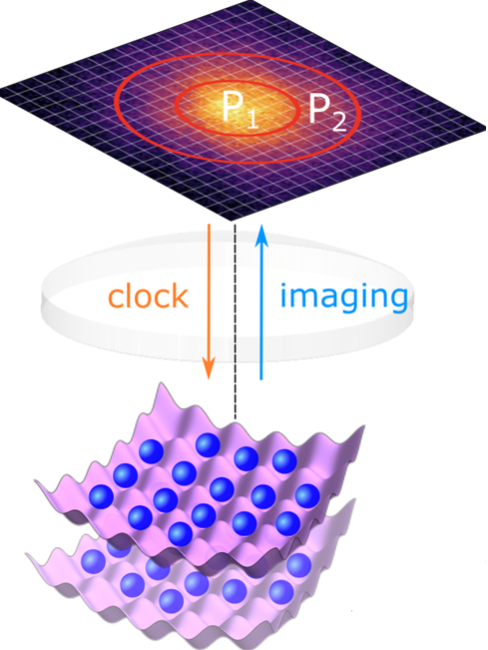Coherent evolution of superexchange interaction in seconds-long optical clock spectroscopy
| Author | |
|---|---|
| Abstract |
Measurement science now connects strongly with engineering of quantum coherence, many-body states, and entanglement. To scale up the performance of an atomic clock using a degenerate Fermi gas loaded in a three-dimensional optical lattice, we must understand complex many-body Hamiltonians to ensure meaningful gains for metrological applications. In this work, we use a near unity filled Sr 3D lattice to study the effect of a tunable Fermi-Hubbard Hamiltonian. |
| Year of Publication |
2025
|
| Date Published |
2025-05
|
| Journal Title |
Science
|
| Volume |
388
|
| Issue |
6746
|
| Start Page or Article ID |
503–508
|
| DOI | |
| URL | |
| Download citation | |
| JILA PI | |
| Related JILA Highlights | |
| Associated Institutes | |
Journal Article
|
|
| JILA Topics | |
| Publication Status | |
| Publication Image |

|


 The Physics Frontiers Centers (PFC) program supports university-based centers and institutes where the collective efforts of a larger group of individuals can enable transformational advances in the most promising research areas. The program is designed to foster major breakthroughs at the intellectual frontiers of physics by providing needed resources such as combinations of talents, skills, disciplines, and/or specialized infrastructure, not usually available to individual investigators or small groups, in an environment in which the collective efforts of the larger group can be shown to be seminal to promoting significant progress in the science and the education of students. PFCs also include creative, substantive activities aimed at enhancing education, broadening participation of traditionally underrepresented groups, and outreach to the scientific community and general public.
The Physics Frontiers Centers (PFC) program supports university-based centers and institutes where the collective efforts of a larger group of individuals can enable transformational advances in the most promising research areas. The program is designed to foster major breakthroughs at the intellectual frontiers of physics by providing needed resources such as combinations of talents, skills, disciplines, and/or specialized infrastructure, not usually available to individual investigators or small groups, in an environment in which the collective efforts of the larger group can be shown to be seminal to promoting significant progress in the science and the education of students. PFCs also include creative, substantive activities aimed at enhancing education, broadening participation of traditionally underrepresented groups, and outreach to the scientific community and general public.